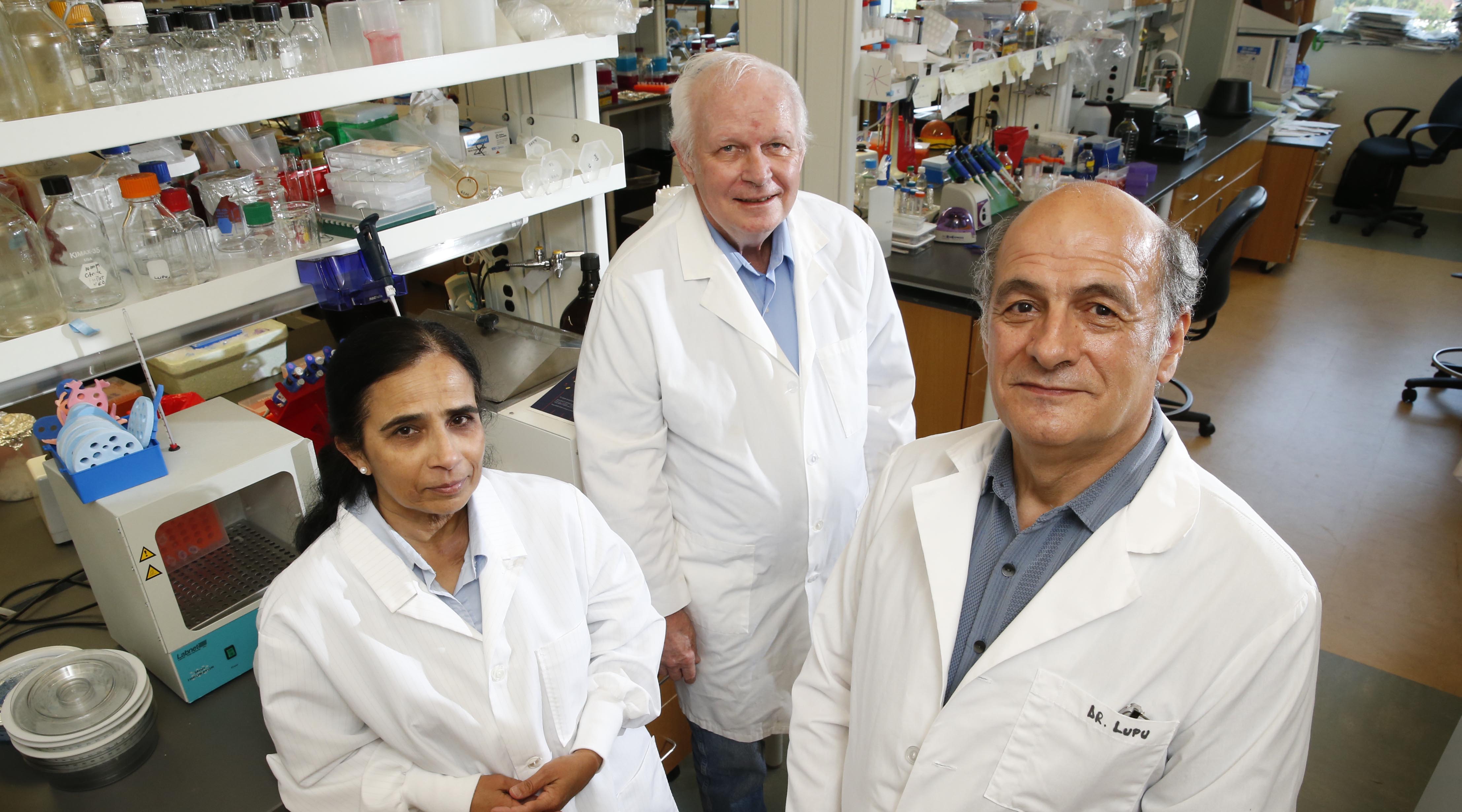Nonprofit and academic researchers are always on the lookout for ways to take a discovery to the drug-development stage quickly and efficiently. Conversely, industry is forever shaking the trees for new technologies that could form the seed of an effective therapeutic
Recognizing this mutual need, GSK launched its “Discovery Partnerships with Academia” (DPAc) initiative in 2011. Dedicated to bringing together the insight and creativity of leading academic scientists with GSK’s drug discovery expertise, the unit has partnered with leading academic centers worldwide to develop innovative medicines.
In July, OMRF joined the DPAc team, signing a new collaboration agreement with GSK. The partnership will focus on the discovery, development and commercialization of novel therapies to prevent organ damage and death caused by conditions such as acute pancreatitis, lung injury and trauma.
At the center of the project will be OMRF’s Dr. Charles Esmon. A member of the National Academy of Sciences who was also a Howard Hughes Medical Institute investigator for more than two decades, Esmon and his lab were the first to recognize the role that proteins called histones play in traumatic injuries.
Specifically, they found that when trauma occurs, the body releases histones—which were previously believed only to be involved in DNA storage—into the bloodstream. Once into the bloodstream, the proteins begin to kill the lining of blood vessels, resulting in uncontrolled bleeding.
“When we realized histones were so toxic, we immediately went to work looking for a way to stop their destructive tendencies,” says Esmon. He and his lab then created a series of experimental antibodies that show promise for stopping this process, which can be fatal.
Under the DPAc agreement, Esmon and two of his OMRF colleagues, Drs. Florea Lupu and Padmaja Mehta-D’Souza, will perform pre-clinical testing and analysis of the antibodies. GSK will then select lead candidates from those antibodies for potential clinical development for indications that include acute pancreatitis, lung injury and trauma.
“We are very excited to initiate this target-to-medicine collaboration with Dr. Esmon, a world-renowned researcher, who has taken a unique approach to finding ways to prevent organ failure and death in acute injury,” says Carolyn Buser-Doepner, Head, DPAc, GSK.
This is an area that needs significant attention, and like GSK, we’re eager to begin this new partnership. It represents an opportunity to fast-track the development of a unique technology, and it would be a major step forward for the treatment of patients.



